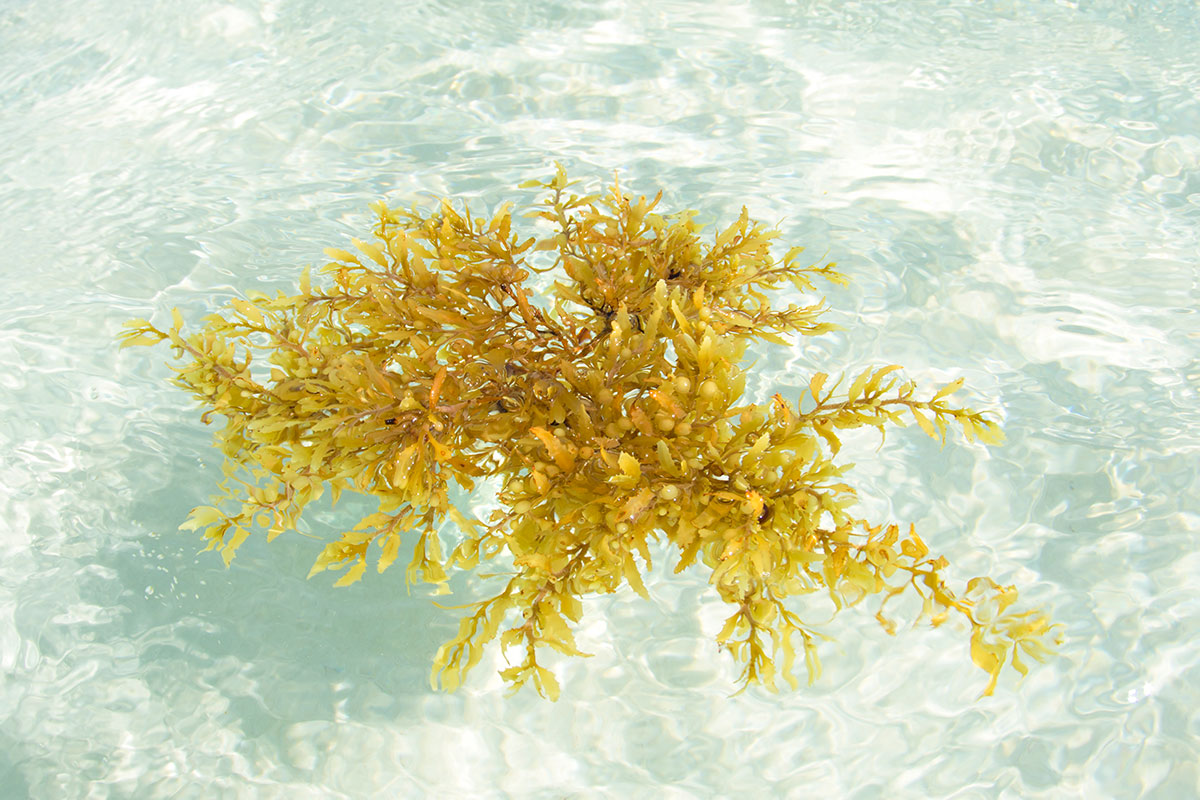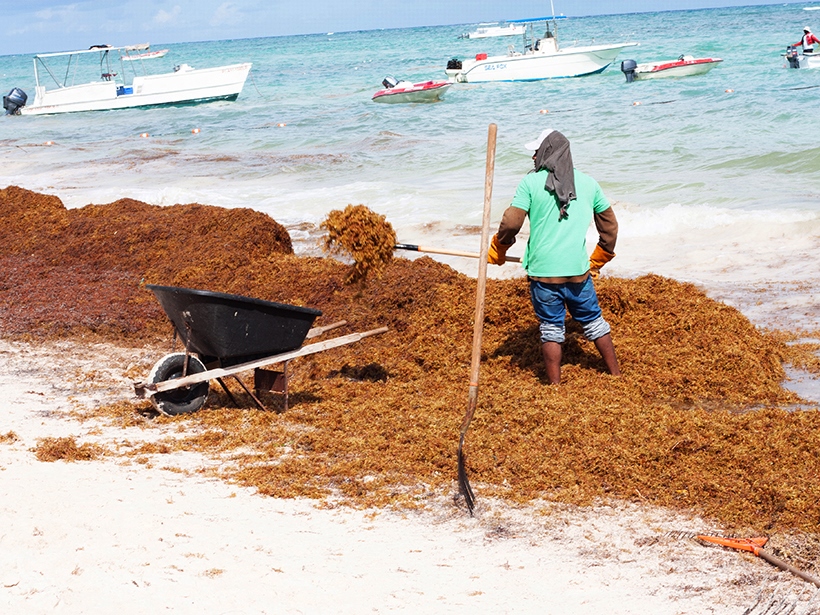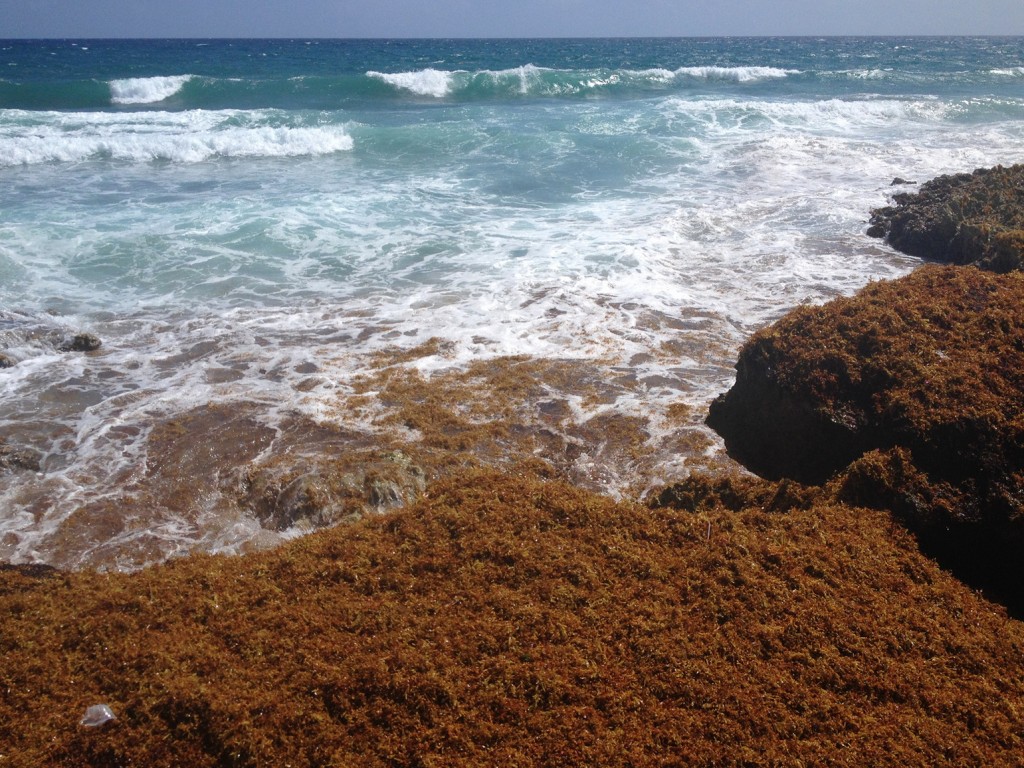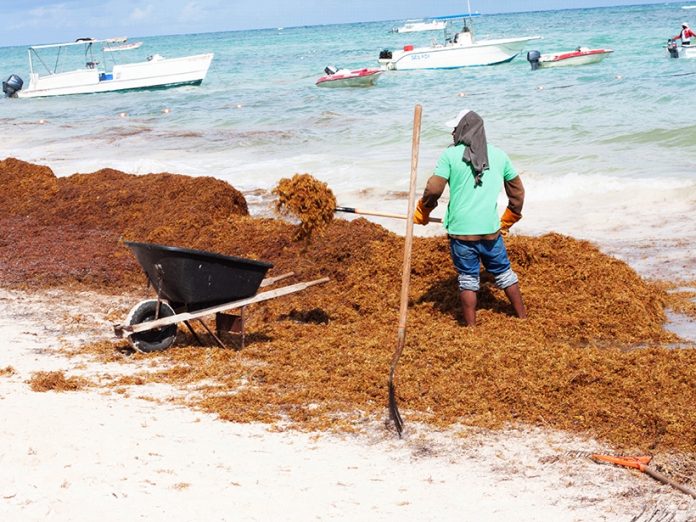Booking a magical glimpse inside Etnia Nativa
Article by Etnia Nativa call us 592 2702 and book your experience!
Etnia Nativa is Aruba’s unique native experience opportunity, where education is combined with entertainment. Share and interact with our exclusive team. Access this private facility and tour a beautiful property made with reused materials collected by its concept developer, our top columnist, avocational archaeologist, and island`s cultural expert. Book a mind-opening encounter and dive deep into the navel of the island.
In this new weekly episode, Etnia Nativa delves into the fertilizing quality, among others, of the seagrass known as sargassum (F. sargassaceae), an important algae widely distributed in tropical and subtropical oceans.

It could be really huge for any Caribbean country’s economy because it can also be used to make a slew of products, from plastic- and leather-like materials to biofuels and cosmetics. If these industries become large enough, they could collectively keep sargassum off the beaches.
Larger seasonal waves stir and loosen the algae from the corals that eventually wash ashore, covering the beaches on the west and north coasts of Aruba in seaweed and seagrass. Nowadays, when sargassum invades the beaches in front of hotels, it is the hotels themselves who are keeping them clean of sargassum.

A traditional native custom was carried out through the Department of Public Works (known locally as DOW), which, by taking charge of beach cleaning tasks, made it accessible for traditional native farmers to collect it for the purpose of fertilizing their “cunuco,” which are traditional agricultural plots of our “Caquetian” ancestors.
Sargassum contains a large amount of nutrients, minerals, and microorganisms that can promote and even accelerate plant growth, such as iron, magnesium, potassium, calcium, and more, thus causing plants to have a better and healthier performance compared when applying synthetic fertilizers. There are over 300 sargassum species. Different species of Sargassum have folk applications in human nutrition and are considered a rich source of vitamins, carotenoids, proteins, and minerals.
The name was given by Portuguese sailors when they found it in great numbers in the so-called Sargasso Sea. The name originated from the woolly rock rose (Halimium lasianthum), which they saw growing in the water wells of their homes and which was called sargassum in Portuguese. Although the seaweed acquired a legendary reputation for covering the entire Sargasso Sea, making navigation very difficult and almost impossible, it has since been discovered that it is only found in drifts.

In some Caribbean countries, different species of Sargassum are cultivated for use as an herbal remedy. Many Chinese herbalists prescribe powdered sargassum—either the species S. pallidum or S. fusiforme—in doses of 0.5 grams dissolved in warm water and drunk as a tea. The medical tea is called hǎizǎo in traditional Chinese medicine, where it is used to resolve “heat phlegm.”
Sargasso presents risks to human health as well. In the water, it’s harmless to humans, but the trouble begins once it lands on the beach and starts to decompose. Breathing in these toxic fumes may cause skin irritation and respiratory and neurocognitive symptoms for those who come into close contact with the degrading sargassum. You can read and learn more details about Sargassum through our cultural blog, “Island Insight,” episode 134, “Sargasso Sea Weed.”
If you liked our native stories and are interested in learning the true identity of Aruba, a visit to Etnia Nativa would be a fantastic choice. It has been a trend setter since 1994, as a co-founder of projects such as Arikok National Park, the Archaeological Museum, and the Artisan Foundation, among others. Every week, this newspaper continues to share its valuable knowledge. Don’t miss the opportunity to feel the island’s spirit through learning real stories that are not just remembered; they resonate, they’re felt, and they stir souls. Book your visit: WhatsApp +297 592 2702 etnianativa03@gmail.com



















